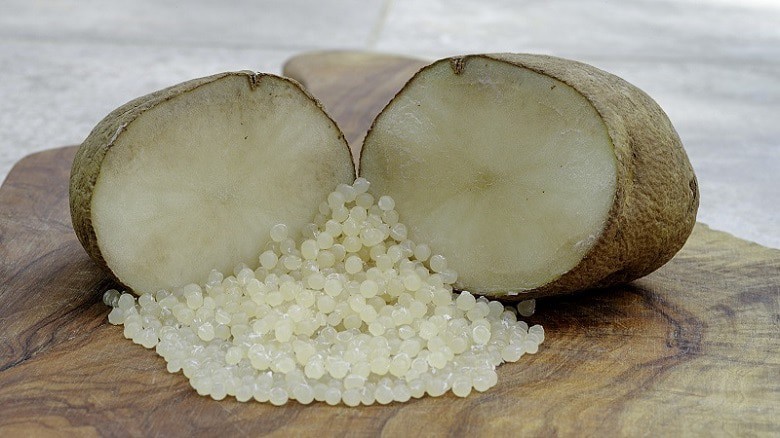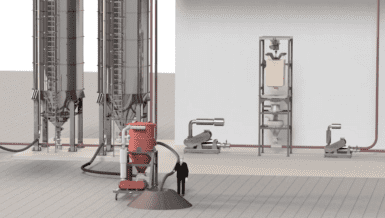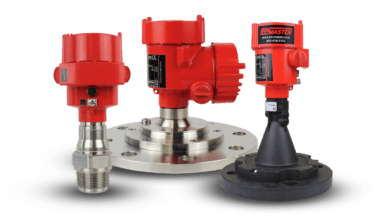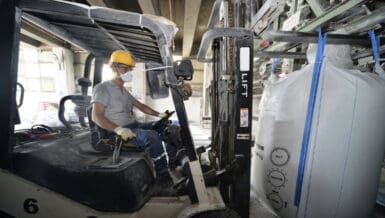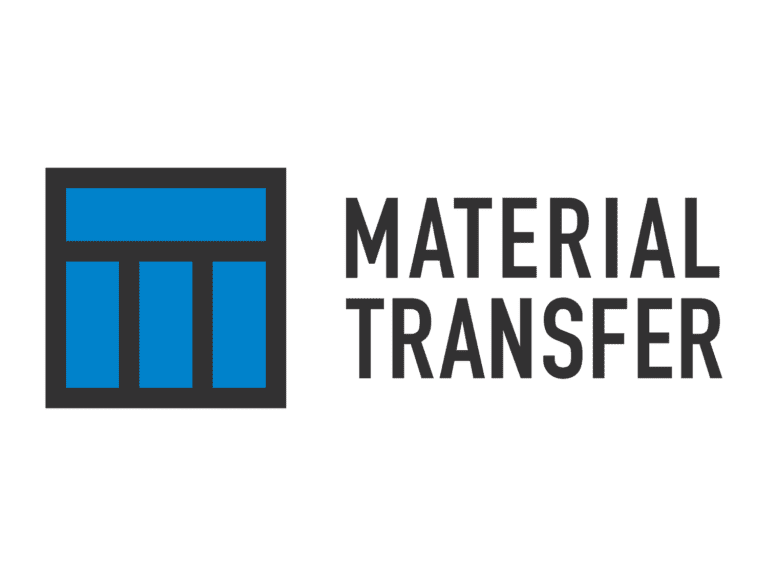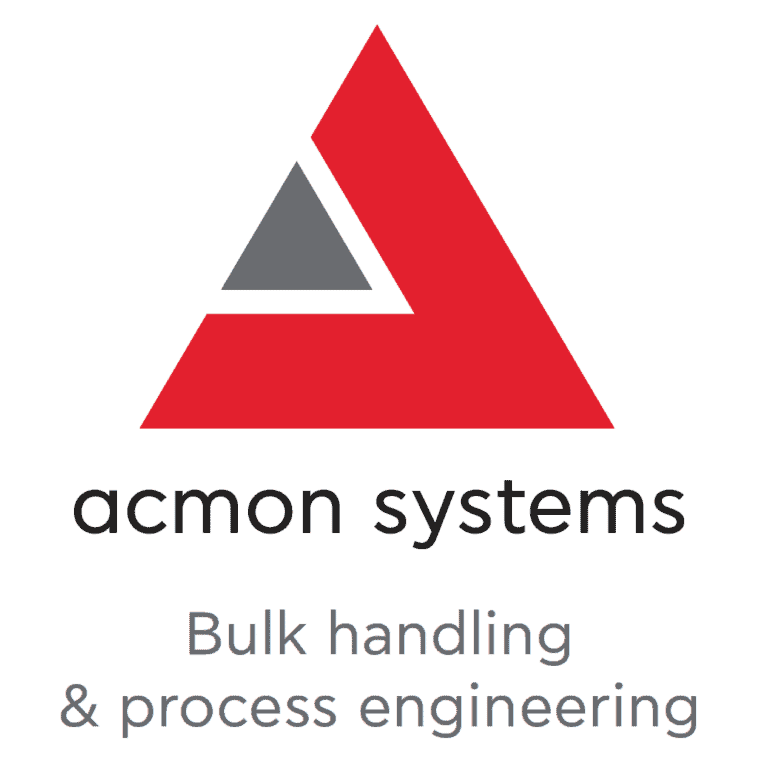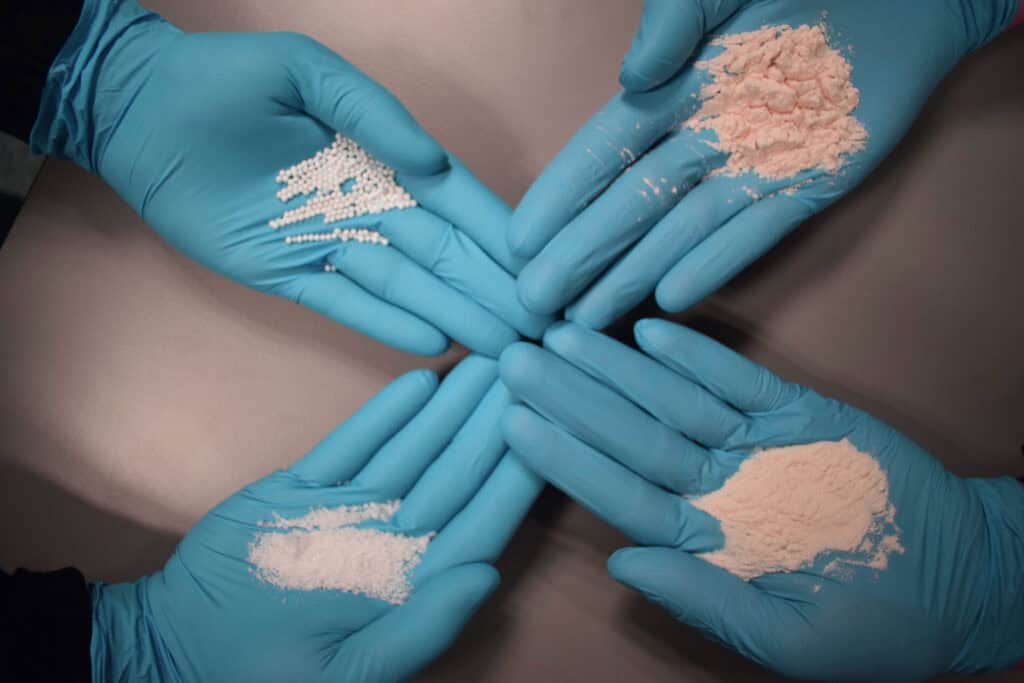This led to the invention of a new kind of Thermoplastic Starch (TPS) called NuPlastiQ® BioPolymers. Using its proprietary process, BioLogiQ® makes a low moisture content plasticized starch resin. They make NuPlastiQ® in pellet form so plastic product manufacturers can use them like traditional plastic resin pellets on their standard production equipment. NuPlastiQ® pellets are designed to be blended with either conventional petroleum resins or newer bio-based resins to make BioBlends, which increase the sustainability of plastic products.
For example, bags made with 25% NuPlastiQ® and 75% PE can be downgauged by 30% result in 50% less fossil fuel being used to make the bags. Use of NuPlastiQ® also reduces greenhouse gas generation, usually between 20%-40%.
The requirements
- Automation of difficult materials:
- Plant-based with fluctuating properties,
- Adherent, sticky, bridging
- Solid and liquid
- Sensitive for dust explosion
- Tailor made production environment
- Expandability for the future
- Ideal material flow
- Low production cost
How it starts
BioLogiQ®, as a process owner and producer of bio-based material, together with AZO‘s German engineering and expertise, set us together to develop a production plant with the focus on quality, consistency and cost efficiency
The story started in 2016, through the first contact at a trade show in the US through the AZO Inc. sales team. The task was to design a processing solution for natural based starch materials like potato or corn.
“Together with technical expertise out of Germany, a short phase of brain storming and system design led to a highly functional solution.”
Justin Sanders, BioLogiQ® Plant Manager
The AZO solution
Based on this design, BioLogiQ® and AZO decided to do trials together in the AZO test centre in Osterburken. During these trials a few limitations were found, and the team had to overcome a few obstacles. During this phase, the important factor was interdisciplinary team-work to find fast solutions with direct testing and test results.
After this test in Osterburken, Germany, BioLogiQ® did the necessary test in the existing production in Blackfoot, Idaho and checked the quality of their compound. The quality of the compound exceeds the expectations of the AZO trials.
The next step was to adapt and scale up the provisional test results to the layout of one production plant in the US and a second one in China. As far as necessary, AZO did additional test during project phase.
The first layout was designed for existing brown field in Blackfoot. Through the result of AZO integrative engineering, the project was changed to a green field project because of:
- Tailor made production environment
- Expandability for the future
- Ideal material flow
- Lower production cost
Modern and well-equipped AZO testing centre in Osterburken
“The company structure of AZO, with more than 40-year experience in the US, and having an experienced team in China and other areas of the world, perfectly meet the requirements of BioLogiQ®’s growth strategy.”
Bryce Esplin, BioLogiQ® Vice President, Manufacturing Operations
Special challenges and good cooperation
Core design from AZO includes the handling and processing of natural materials such as corn or potato starch. Special challenges are the fluctuating properties of these sticky natural starches, critical dust explosion data, and some specialties during the processing of the wet compound as pig cleaning design. The result is a tailor-made solution designed for the needs of BioLogiQ®.
During the project phase, the cooperation was driven by mutual trust and willingness to adapt changes and innovative modifications in a solution-oriented way!




